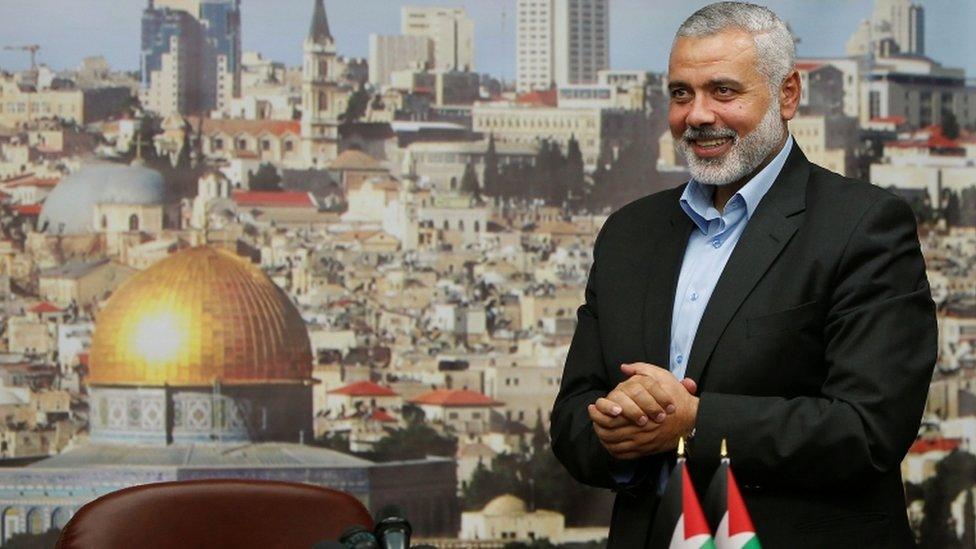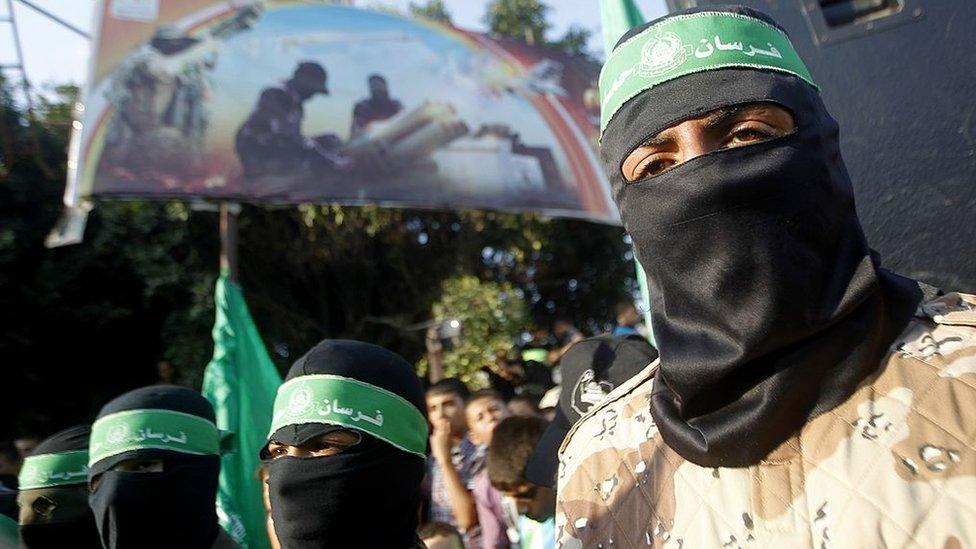Hamas chooses Ismail Haniya as new leader
- Published

Ismail Haniyeh is a former Hamas prime minister
The Palestinian militant group Hamas has announced that Ismail Haniya has been chosen as its new overall leader.
He succeeds Khaled Meshaal, who has served the maximum two terms in office.
Mr Haniya, 54, lives in Gaza, which Hamas has ruled since 2007, unlike Mr Meshaal, who lives in Qatar.
Mr Haniya is seen as a pragmatist who will try to ease Hamas's international isolation. The group published a new policy document this week regarded as an attempt to soften its image.
Hamas spokesman Fawzi Barhoum confirmed on Saturday that Mr Haniya had been selected as the politburo chief.
Hamas as a whole, or in some cases its military wing, is designated a terrorist group by Israel, the US, EU, UK and other powers.
This week, Hamas published its first new policy document since its founding charter.

Hamas officials say the new document does not replace the group's 1988 charter
It declares for the first time a willingness to accept an interim Palestinian state within pre-1967 boundaries, without recognising Israel.
It also says Hamas's struggle is not with Jews but with "occupying Zionist aggressors". The 1988 charter, external was condemned for its anti-Jewish language.
Mr Barhoum said: "The document gives us a chance to connect with the outside world."
A spokesman for Israeli PM Benjamin Netanyahu said Hamas was "attempting to fool the world but it will not succeed".
The new document stresses it does not mean that Hamas now recognises Israel's right to exist or that it no longer advocates violence against Israel.
Gaza has been under blockade by Israel and Egypt for the past decade, imposed to prevent attacks by militants inside the territory. Its economy has been crippled as a result, and many of its 1.9 million inhabitants suffer daily hardships.
Relations between Hamas and Egypt have recently begun to improve, with a visit to Cairo this year by Mr Haniya.
Ismail Haniya was born in the Shati refugee camp to the west of Gaza City and although a close associate of Hamas's spiritual leader, the late Sheikh Ahmad Yassin, he was relatively unknown until he headed the Hamas list that won the Palestinian legislative election of January 2006 and became prime minister.